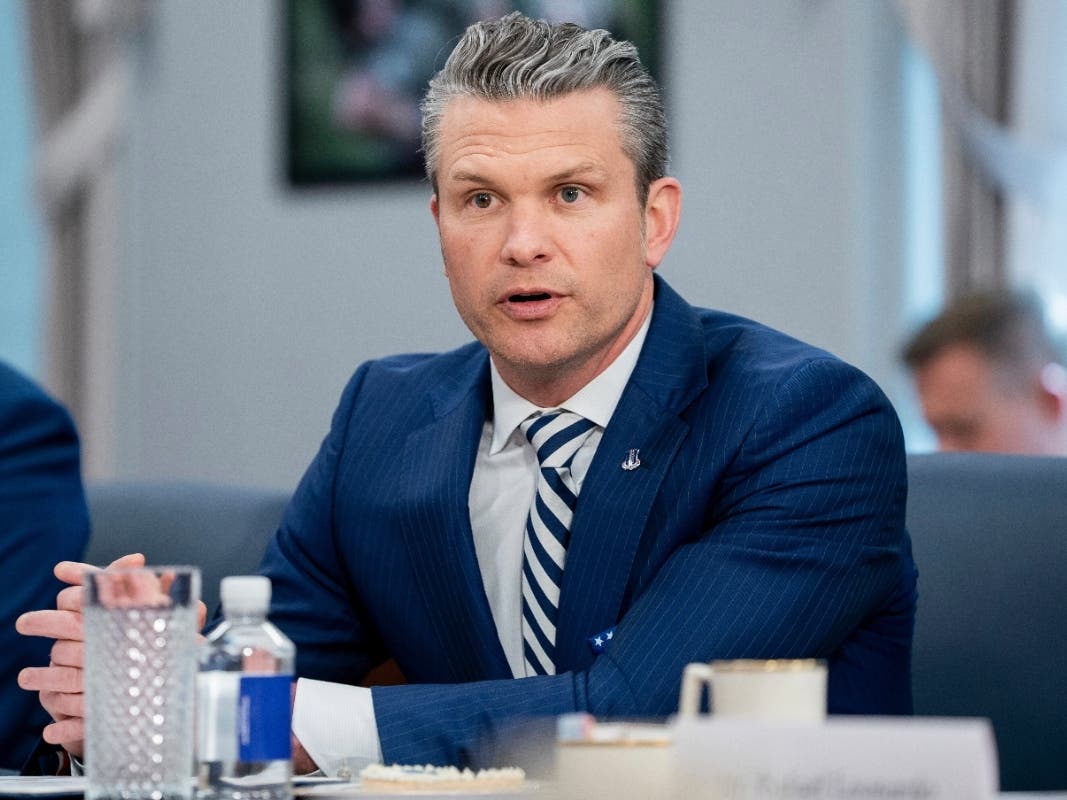PRINCETON, NJ — Secretary of Defense Pete Hegseth has been accused of plagiarism by the student newspaper of his alma mater, Princeton University.
In a report published Saturday, The Daily Princetonian said Hegseth’s senior year thesis contained “eight instances of uncredited material, sham paraphrasing, and verbatim copying.”
The paper said it got three experts on plagiarism to review Hegseth’s thesis, “Modern Presidential Rhetoric and the Cold War Context.” None of the experts were made aware of the author’s identity before assessing the work.
Citing one example, Hegseth wrote in his thesis about President George W. Bush’s first finding out about the attack on the World Trade Center on 9/11.
“After Card’s whisper, Bush looked distracted and somber but continued to listen to the second-graders, joking that they ‘read like sixth-graders,’” the defense secretary wrote.
An almost identical sentence was published by the Washington Post in 2001, two years before Hegseth wrote this thesis.
“After Card’s whisper, Bush looked distracted and somber but continued to listen to the second-graders read and soon was smiling again. He joked that they read so well, they must be sixth-graders,” the story in The Post reads.
Hegseth did not cite the Washington Post in his thesis.
According to the Prince, plagiarism detection models flagged a total of 12 passages throughout Hegseth’s paper. Only eight were significant while the remaining four “were not deemed to be of significance on a standalone basis, but fit a broader pattern of some form of plagiarism.”
James M. Lang, the author of “Cheating Lessons: Learning from Academic Dishonesty,” called it a “borderline case”, telling the student newspaper, “There’s no silver bullet here; there’s no smoking gun in terms of a deep example of plagiarism.”
The three experts interviewed by the ‘Prince’ differed on which passages amount to serious plagiarism and which are minor. They were of the opinion that there was more “gray than black and white.”
A passage Lang believes constitutes serious plagiarism was a section discussing Kennedy’s speeches during the Cold War.
“Kennedy, who had just given a speech about the need for peace, got carried away and just ad-libbed the opposite, saying there was no way to work with the Communists,” Hegseth wrote.
According to Lang, he used phrases identical to what appears in Richard Reeves’ book “President Kennedy: Profile of Power.” Although Reeves was cited in the paper, there were no quotation marks.
While Lang sees this as serious, Jonathan Bailey, of “Plagiarism Today,” did not view this passage or seven others as particularly egregious.
“Even the ones that were more direct still typically only involve a sentence or two at a time,” Bailey told the Prince.
The third expert, Guy Curtis, a researcher at the University of Western Australia who studies academic integrity, told the student newspaper that the thesis violated the rules set by the university.
“Once you get 10 to 15 words in a row by ‘accident’ that happens to correspond with something else — it’s probably not accidental,” Curtis told the Prince.
The student newspaper got a digital copy of Hegseth’s 90-page thesis from the university’s Mudd Manuscript Library.
Hegseth graduated from Princeton University in 2003.
After the publication of this report, Chief Pentagon Spokesperson Sean Parnell gave a statement to Konstantin Toropin, a reporter for military.com.
“Secretary Hegseth has written five books. He’s written hundreds of papers and op-eds. During the confirmation process, every word was reviewed by top left-wing law firms working in conjunction with every media outlet in the country. They found no plagiarism because there was no plagiarism,” Parnell wrote.
“This is a fake story designed to distract from the DoD’s historic accomplishments under President Trump and Secretary Hegseth’s leadership.”
You can read the complete story in The Daily Princetonian.
